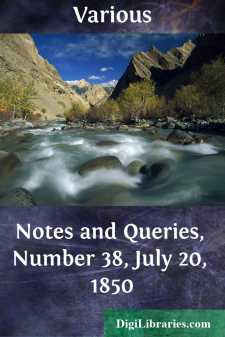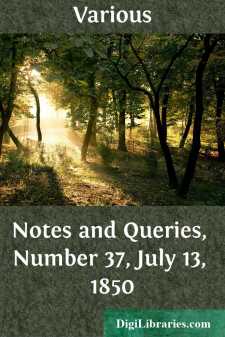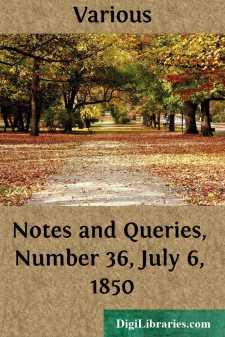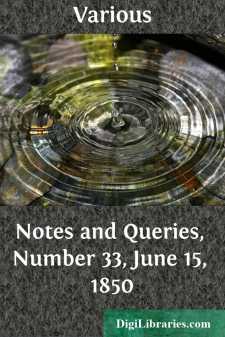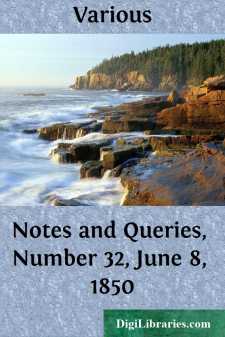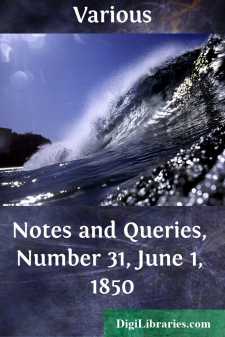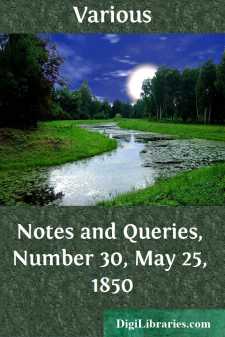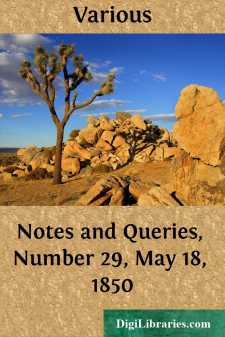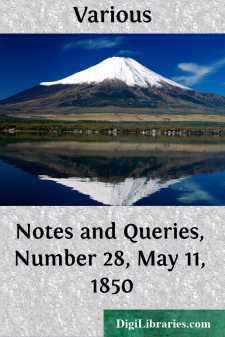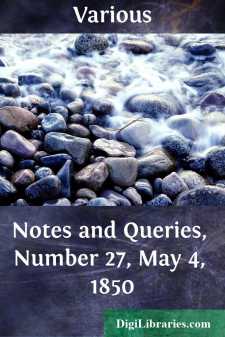Categories
- Antiques & Collectibles 13
- Architecture 36
- Art 48
- Bibles 22
- Biography & Autobiography 813
- Body, Mind & Spirit 142
- Business & Economics 28
- Children's Books 15
- Children's Fiction 12
- Computers 4
- Cooking 94
- Crafts & Hobbies 4
- Drama 346
- Education 46
- Family & Relationships 57
- Fiction 11829
- Games 19
- Gardening 17
- Health & Fitness 34
- History 1377
- House & Home 1
- Humor 147
- Juvenile Fiction 1873
- Juvenile Nonfiction 202
- Language Arts & Disciplines 88
- Law 16
- Literary Collections 686
- Literary Criticism 179
- Mathematics 13
- Medical 41
- Music 40
- Nature 179
- Non-Classifiable 1768
- Performing Arts 7
- Periodicals 1453
- Philosophy 64
- Photography 2
- Poetry 896
- Political Science 203
- Psychology 42
- Reference 154
- Religion 513
- Science 126
- Self-Help 84
- Social Science 81
- Sports & Recreation 34
- Study Aids 3
- Technology & Engineering 59
- Transportation 23
- Travel 463
- True Crime 29
Sort by:
by:
Various
NOTES. WHAT IS THE MEANING OF "DELIGHTED," AS SOMETIMES USED BY SHAKSPEARE. I wish to call attention to the peculiar use of a word, or rather to a peculiar word, in Shakspeare, which I do not recollect to have met with in any other writer. I say a "peculiar word," because, although the verb To delight is well known, and of general use, the word, the same in form, to which I refer, is...
more...
by:
Various
NOTES THE AUTHOR OF THE "CHARACTERISTICS." Lord Shaftesbury's Letters to a young Man at the University, on which Mr. SINGER has addressed to you an interesting communication (Vol. ii., p. 33.), were reprinted in 1746 in a collection of his letters, "Letters of the Earl of Shaftesbury, author of the Characteristicks, collected into one volume: printed MDCCXLVI." 18mo. This volume...
more...
by:
Various
NOTES FURTHER NOTES ON DERIVATION OF THE WORD "NEWS". Without being what the Germans would call a purist, I cannot deem it an object of secondary importance to defend the principles of the law and constitution of the English language. For the adoption of words we have no rule; and we act just as our convenience or necessity dictates: but in their formation we must strictly conform to the laws...
more...
by:
Various
DR. WHICHCOTE, MICHAEL AYNSWORTH, AND LORD SHAFTESBURY. Not less remarkable and interesting than the publication of Dr. Whichcote's Sermons by the noble author of the Characteristics, is a posthumous volume (though never designed for the press) under the following title:— "Several Letters written by a Noble Lord to a Young Man at the University. "Quo semel est imbuta recens servabit...
more...
by:
Various
NOTES. PRESENCE OF STRANGERS IN THE HOUSE OF COMMONS. In the late debate on Mr. Grantley Berkeley's motion for a fixed duty on corn, Sir Benjamin Hall is reported to have imagined the presence of a stranger to witness the debate, and to have said that he was imagining what every one knew the rules of the House rendered an impossibility. It is strange that so intelligent a member of the House of...
more...
by:
Various
OUR SECOND VOLUME. We cannot resist the opportunity which the commencement of our Second Volume affords us, of addressing a few words of acknowledgment to our friends, both contributors and readers. In the short space of seven months, we have been enabled by their support to win for "NOTES AND QUERIES" no unimportant position among the literary journals of this country. We came forward for the...
more...
by:
Various
NOTES DR. JOHNSON AND DR. WARTON. Amongst the poems of the Rev. Thos. Warton, vicar of Basingstoke, who is best remembered as the father of two celebrated sons, is one entitled The Universal Love of Pleasure, commencing— "All human race, from China to Peru, Pleasure, howe'er disguised by art, pursue." &c. &c. Warton died in 1745, and his Poems were published in 1748....
more...
by:
Various
OLIVER CROMWELL AS A FEOFFEE OF PARSON'S CHARITY, ELY There is in Ely, where Cromwell for some years resided, an extensive charity known as Parson's Charity, of which he was a feoffee or governor. The following paper, which was submitted to Mr. Carlyle for the second or third edition of his work, contains all the references to the great Protector which are to be found in the papers now in the...
more...
by:
Various
NOTES ETYMOLOGY OF PENNIEL. Some eighteen years ago, the writer of the following sonnets, by the kindness of the proprietors of a pleasant house upon the banks of the Teviot, enjoyed two happy autumns there. The Roman road which runs between the remains of the camp at Chew Green, in Northumberland, and the Eildon Hills (the Trimontium of General Roy), passed hard by. The road is yet distinctly visible...
more...
by:
Various
THE MOSQUITO COUNTRY.—ORIGIN OF THE NAME.—EARLY CONNECTION OF THE MOSQUITO INDIANS WITH THE ENGLISH. The subject of the Mosquito country has lately acquired a general interest. I am anxious to insert the following "Notes and Queries" in your useful periodical, hoping thus to elicit additional information, or to assist other inquirers. 1. As to the origin of the name. I believe it to be...
more...


